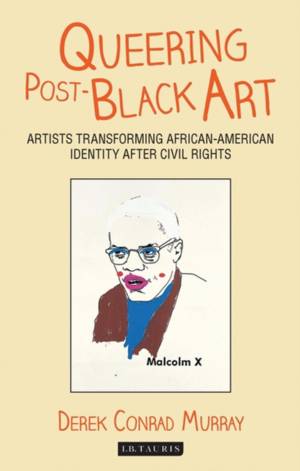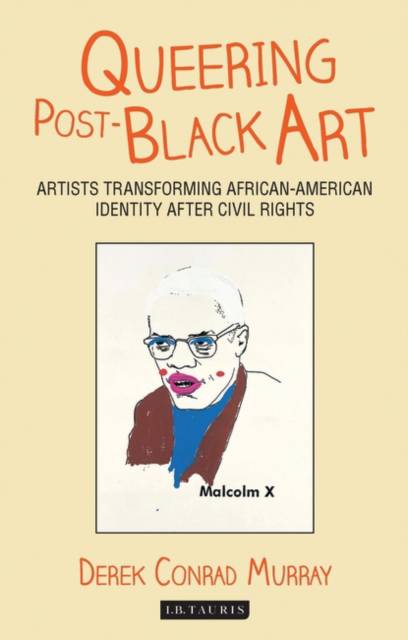
Door een staking bij bpost kan je online bestelling op dit moment iets langer onderweg zijn dan voorzien. Dringend iets nodig? Onze winkels ontvangen jou met open armen!
- Afhalen na 1 uur in een winkel met voorraad
- Gratis thuislevering in België vanaf € 30
- Ruim aanbod met 7 miljoen producten
Door een staking bij bpost kan je online bestelling op dit moment iets langer onderweg zijn dan voorzien. Dringend iets nodig? Onze winkels ontvangen jou met open armen!
- Afhalen na 1 uur in een winkel met voorraad
- Gratis thuislevering in België vanaf € 30
- Ruim aanbod met 7 miljoen producten
Zoeken
Queering Post-Black Art
Artists Transforming African-American Identity After Civil Rights
Derek Conrad Murray
€ 33,45
+ 66 punten
Uitvoering
Omschrijving
What impact do sexual politics and queer identities have on the understanding of 'blackness' as a set of visual, cultural and intellectual concerns? In Queering Post-Black Art, Derek Conrad Murray argues that the rise of female, gay and lesbian artists as legitimate African-American creative voices is essential to the development of black art. He considers iconic works by artists including Glenn Ligon, Kehinde Wiley, Mickalene Thomas and Kalup Linzy, which question whether it is possible for blackness to evade its ideologically over-determined cultural legibility. In their own unique, often satirical way, a new generation of contemporary African American artists represent the ever-evolving sexual and gender politics that have come to define the highly controversial notion of 'post-black' art. First coined in 2001, the term 'post-black' resonated because it articulated the frustrations of young African-American artists around notions of identity and belonging that they perceived to be stifling, reductive and exclusionary. Since then, these artists have begun to conceive an idea of blackness that is beyond marginalization and sexual discrimination.
Specificaties
Betrokkenen
- Auteur(s):
- Uitgeverij:
Inhoud
- Aantal bladzijden:
- 256
- Taal:
- Engels
- Reeks:
Eigenschappen
- Productcode (EAN):
- 9781784532871
- Verschijningsdatum:
- 18/12/2015
- Uitvoering:
- Paperback
- Formaat:
- Trade paperback (VS)
- Afmetingen:
- 137 mm x 213 mm
- Gewicht:
- 340 g

Alleen bij Standaard Boekhandel
+ 66 punten op je klantenkaart van Standaard Boekhandel
Beoordelingen
We publiceren alleen reviews die voldoen aan de voorwaarden voor reviews. Bekijk onze voorwaarden voor reviews.











